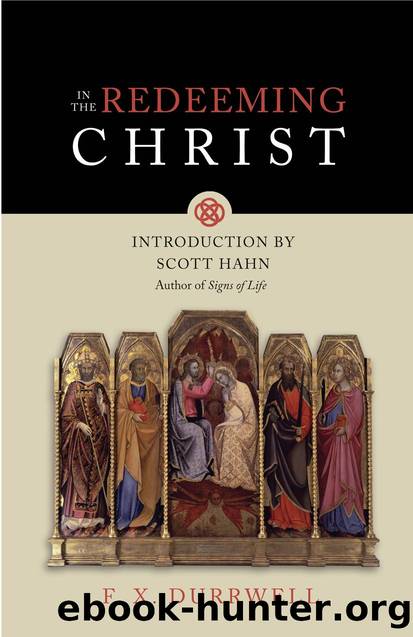In the Redeeming Christ by Durrwell F. X

Author:Durrwell, F. X. [Durrwell, F. X.]
Language: eng
Format: epub
Publisher: Ave Maria Press
Published: 2013-04-22T00:00:00+00:00
TEN
Christian Obedience
Christians nowadays have one cause of suffering not experiencedâor not to the same extentâby Christians in the past. For them the road they walked was clearly marked out, a time-honored path marked by solid traditions of doctrine and ascesis. For many Christians now, all this seems to have been called in question. Methods which it seemed would never change, and even ideas hallowed by tradition, are all in flux. The sure and safe roads seem to have disappeared. Many of our young Christians find themselves at sea amid the old traditions that are falling apart and the welter of new ideas springing up.
Yet now, as in the past, they must follow the path of the baptized, the true road of holiness; they must realize the Christian ideal, firm in their faith in Christ and the one true Church. What, then, is that ideal? By what criterion are things specifically Christian? Scripture gives us the answer: Christian holiness is a holiness of obedience; our road lies in a wholehearted submission to God in the Church.
The Jews divided mankind into two categoriesâthemselves and others, Jews and Gentiles. Christians, who came from both groups, knowing the new creation effected in them by God, called themselves âthe third race.â Each of the three âracesâ has not only its own special doctrine and cult, but also its ideal of life: Pagan, Jew, and Christian all have their own ideal of perfection.
I. The Greek Ideal
Pagan man saw perfection as belonging to the order of reason; he expected to find it in the fullest human development of his own faculties. This humanism found its purest expression in the Greek world. The Greek ideal lay not in holiness in the biblical senseâconsecration, union with Godâs willâbut in the autonomous development of all that is noblest in man. This search for perfection achieved its goal most characteristically in the hero and in the sage. The heroâs heroism consisted in an affirmation of himself whereby he was superior to all adversity, a lofty kind of egoism. The wisdom of the sage lay in grasping the great principles of human life and living in conformity with them. In both cases the result was complete freedom; each obeyed only himself, his own will to be great, the truths learnt from his own reason. Even when the Greek was obliged to carry his heroism as far as death, it remained always a heroism of fidelity to himself.
II. The Old Testament Ideal
In the Bible, on the other hand, morality means submission, the person of man being subject to the person of God, obedience to God who has made known his will. The ideal is not heroism but holiness, which means submission to Godâs will until death; and that will does not always correspond with manâs own wishes or the dictates of his reasonâso much so that what is wisdom in scripture may appear folly to the Greeks.
The law to which Israel submits is not the law of reason, as in Greece, but the law of God.
Download
This site does not store any files on its server. We only index and link to content provided by other sites. Please contact the content providers to delete copyright contents if any and email us, we'll remove relevant links or contents immediately.
What Is the Gospel? (Foreword by D. A. Carson) by Greg Gilbert(990)
Jesus in Me by Anne Graham Lotz(967)
Daily Strength: Devotions for Bible Believing Study by Douglas Stauffer & Andrew Ray & Rick Quatro(897)
Christian Ethics by Wilkens Steve;(860)
The Practice Is the Path by Tias Little(822)
New Morning Mercies by Tripp Paul David(808)
Cleaning Up Your Mental Mess by Dr. Caroline Leaf(740)
Veritas: A Harvard Professor, a Con Man and the Gospel of Jesus's Wife by Ariel Sabar(735)
Greatest Mystery in the World by Og Mandino(667)
The Creative Call by Janice Elsheimer(602)
No More Christian Nice Guy by Paul Coughlin(589)
Our Appointment with Life by Thich Nhat Hanh(573)
Monastic Archaeology by Unknown(568)
2084 by John C. Lennox(558)
This One Wild and Precious Life by Sarah Wilson(544)
Jesus--Awesome Power, Awesome Love (Discover 4 Yourself® Inductive Bible Studies for Kids) by Kay Arthur(534)
The Catholic Verses: 95 Bible Passages That Confound Protestants by Dave Armstrong(525)
The Duties of Parents by J.C. Ryle(518)
The Tale of the Tardy Oxcart (Swindoll Leadership Library) by Swindoll Charles R(507)
